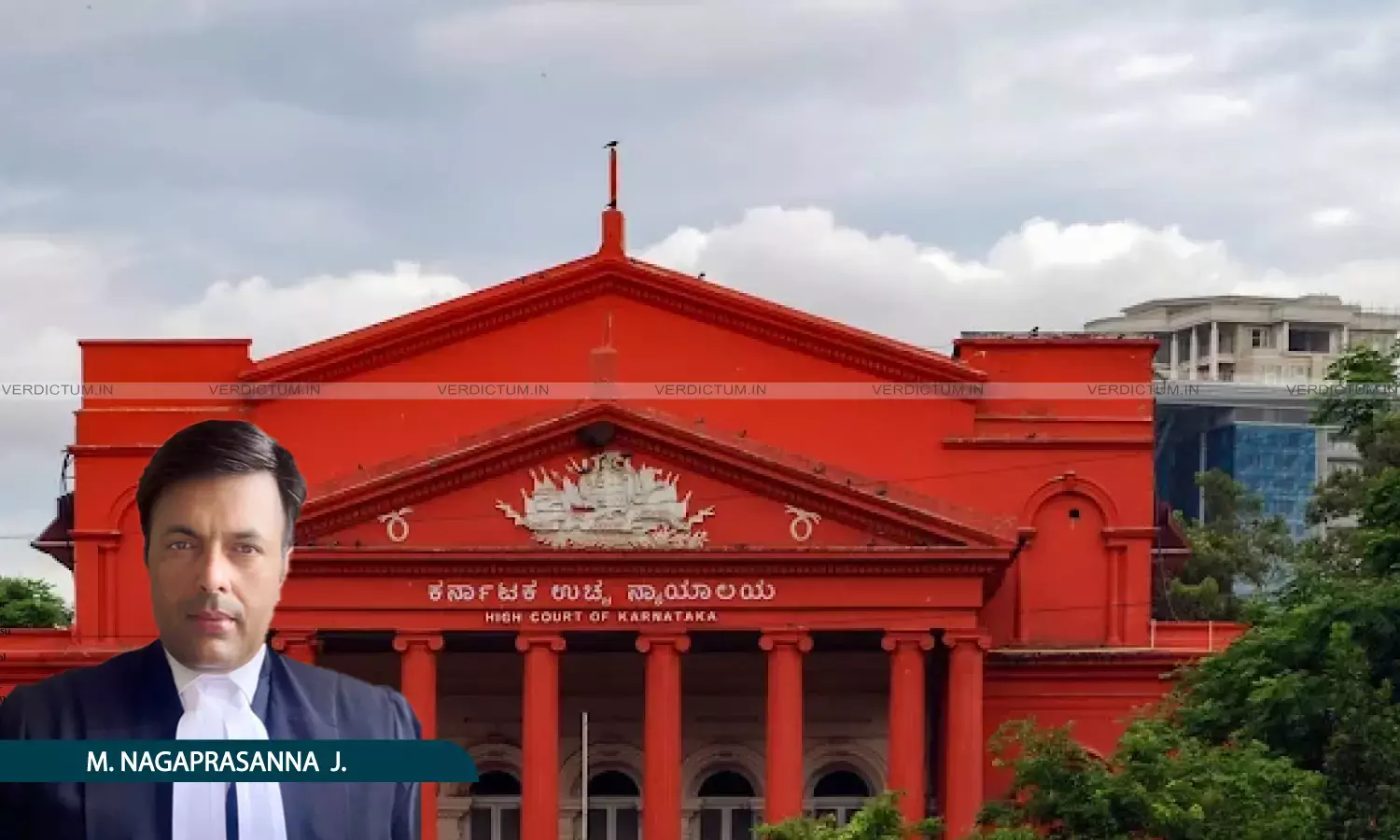Age Bar In Compassionate Appointment Must Be Applied Humanely: Karnataka High Court Directs Corporation To Reconsider Widow’s Claim
Holding that the object of compassionate appointment cannot be defeated by rigid mechanical application of age limits, the Karnataka High Court quashed two endorsements rejecting a widow’s claim.

Justice M. Nagaprasanna, Karnataka High Court
The Karnataka High Court has held that a claim for compassionate appointment cannot be rejected only because an applicant crosses the upper age limit prescribed under a service scheme, particularly when the family faces severe financial distress due to the employee’s death in harness.
The Court was hearing a writ petition filed by the widow of a deceased driver-cum-conductor of the North Western Karnataka State Road Transport Corporation (NWKRTC), challenging two endorsements rejecting her request for compassionate appointment.
The Corporation had rejected her claim, stating that she was 47 years old when her husband died, while the scheme permitted appointments only up to the age of 43.
A Bench comprising Justice M. Nagaprasanna, while relying on the Supreme Court’s ruling in Canara Bank vs. Ajithkumar G.K, in which it was held that the need for compassionate appointment should be the consideration by any Corporation or the employer while rejecting or accepting the application, observed that “the petition deserves to succeed on the sole score that the Corporation will have to now reconsider the application, of the petitioner seeking appointment on compassionate grounds with regard to a relaxable age limit or the extendable age limit, owing to the circumstances that the applicant has narrated, in two of the representations submitted by her.”
Advocate Girish V. Bhat appeared for the petitioner, while Advocate Prashant Hosamani represented the respondents.
Background
The petitioner’s husband was employed as a driver-cum-conductor in the respondent-Corporation and died in harness. Immediately thereafter, the petitioner submitted an application seeking compassionate appointment, stating that the family was driven into financial difficulty due to the death of the sole breadwinner.
The Corporation rejected her representation through an endorsement, stating that she was 47 years, 2 months, and 24 days old on the date of her husband’s death, and therefore beyond the permissible limit of 43 years under the scheme. A second rejection was issued, reiterating the same ground, despite her subsequent representations explaining the financial hardships faced by the family.
Aggrieved, the petitioner approached the High Court seeking the quashing of the endorsements and a direction for appointment on compassionate grounds.
Court’s Observation
The Karnataka High Court noted that an identical scheme had earlier been considered by a Coordinate Bench of the High Court, which had held that compassionate appointment cannot be refused merely because the applicant crosses the upper age limit, especially when such refusal defeats the very purpose of the scheme. The Bench agreed with that view and found it necessary to amplify the reasoning.
The Bench relied on the Supreme Court’s judgment in Canara Bank v. Ajithkumar G.K., in which the Apex Court had remarked that “…what seems to be logical is that no dependant, who otherwise satisfies all criteria for compassionate appointment including suitability, should be told off at the gate solely on the ground of age-bar.”
The Apex Court, in the same order, had further clarified that “if the age of the claimant is found to be within the relaxable limit, discretion is available to be exercised in an appropriate case,” while stating that the objective behind granting compassionate appointments is to “achieve the noble goal of giving succour to the dependants of the employee dying-in-harness, who are genuinely in need, and not with the aim of giving them a post for another post”.
The Court held that in the present case, the Corporation had mechanically applied the age clause without examining the petitioner’s financial condition, which is contrary to the guiding principles laid down by the Supreme Court. The absence of such analysis, the Bench held, rendered the rejection unsustainable.
Conclusion
Holding that the endorsements could not stand, the High Court quashed both rejection orders and remitted the matter to the Corporation for fresh consideration.
The Court directed the respondents to reconsider the petitioner’s application for compassionate appointment without mechanically applying the upper-age bar, and to do so within eight weeks from the receipt of the Court’s order.
The writ petition was accordingly allowed.
Cause Title: Saroja v. Managing Director, North Western Karnataka State Road Transport Corporation & Ors (Neutral Citation: 2025:KHC-D:13820)
Appearances
Petitioner: Girish V. Bhat, Advocate
Respondents: Prashant Hosamani, Advocate


